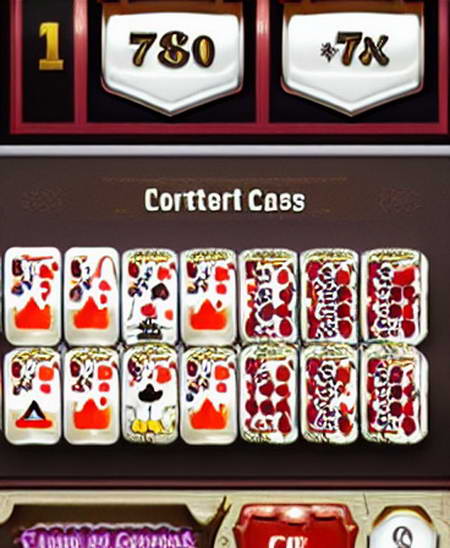

In the world of card games, understanding various techniques can significantly influence outcomes. Players must be aware of the numerous combinations and strategies that shape each round, particularly when stakes rise and player dynamics shift. Knowledge of winning formations is essential for those aiming for victory against opposing participants.
It becomes imperative for enthusiasts to grasp the subtleties involved in competitive scenarios, especially when initial investments are made before cards are even dealt. Adaptability and strategic thinking play crucial roles as individuals navigate through hands while keeping a keen eye on both their own cards and potential rival configurations.
By mastering the art of evaluation and decision-making at the appropriate moments, players can enhance their performance significantly. This article delves into essential insights that can empower both novices and seasoned veterans to refine their approach at the table, ultimately boosting their chances of triumph.
Developing expertise in card combinations is essential for success in this popular game. Understanding how various formations interact with one another lays a solid foundation for effective decision-making during each round. Skillful participants can take advantage of their knowledge to increase their chances of winning while navigating the dynamics of competitive play.
Adopting a strategic mindset is crucial when facing the dealer. Each move requires careful consideration, weighing your current hand’s strength against potential outcomes. By recognizing patterns in the dealer’s behavior and adjusting your approach accordingly, players can shift the odds in their favor.
Furthermore, mastering the nuances of positioning significantly impacts overall performance. Those acting later in a round have the advantage of observing prior actions, allowing for more informed choices. Thus, embracing an adaptable strategy based on the unfolding game can enhance the likelihood of a favorable outcome.
In conclusion, focusing on the intricacies of card formations, understanding dealer tendencies, and leveraging position can greatly influence the success rate. With practice and dedication, players can refine their skills and elevate their gameplay experience.
In many card games, initial stakes play a crucial role in shaping the dynamics at the table. These upfront contributions create excitement and strategy among participants, influencing decisions and enhancing interactions throughout the match. Knowing how these stakes function is essential for any player looking to refine their approach and maximize their potential advantages.
Ante refers to a forced bet made by all players before the cards are dealt. This requirement ensures that there is always something in the pot, encouraging engagement from everyone involved. It serves as a way to build the initial prize and drives competitiveness, motivating players to strategize their moves right from the outset.
On the other hand, blind bets are mandatory wagers placed by two designated players, usually sitting to the left of the dealer position. These bets come in two forms: small and big blinds. The small blind is a lesser amount, while the big blind is typically double that. This system not only initiates the action but also establishes a framework for subsequent betting rounds, allowing for strategic depth and variability as the game progresses.
Understanding these two types of initial wagers is vital for developing effective strategies. Recognizing how they affect the overall game mechanics can lead to smarter decisions and improved outcomes for each player at the table.
Understanding fundamental bets is crucial for engaging in card games that involve wagering. These preliminary stakes set the stage for gameplay, influencing strategies and decisions throughout the rounds. Knowing how initial bets work can greatly enhance one’s approach and increase chances of success.
Initial contributions typically consist of forced wagers that participants must place before any cards are dealt. Such mandatory stakes can take various forms, and their implementation varies depending on specific game rules. Participants should familiarize themselves with different types of initial contributions, as this knowledge will aid in developing a sound strategy.
Moreover, making well-informed initial bets can impact the overall dynamics of the game. Players must assess their starting positions, hand potentials, and the nature of their opponents when deciding how much to stake. A calculated approach to these compulsory wagers can set a strong foundation for future actions during the game.
Making decisions during a game requires careful consideration of various factors. Understanding when to escalate a bet or simply walk away can significantly impact overall success. This section explores key moments that dictate raising or folding, allowing players to optimize their strategies.
By focusing on these factors, players enhance their ability to decide whether to raise stakes or fold their cards, ultimately improving overall gameplay and success rates.
In a competitive environment where skill and chance intertwine, understanding effective tactics can significantly enhance your chances of success. Employing the right strategies not only improves decision-making but also instills confidence while navigating the game. Here are several approaches to consider:
Implementing these tactics can lead to a more rewarding experience, turning the odds in your favor. Remember, adaptability in approach often separates seasoned players from novices.

Understanding one’s card value is essential for making informed decisions during gameplay. Different combinations contribute to the overall strength of a player’s position, affecting strategy and betting behavior. Recognizing the potential of your combination in relation to opponents’ possible hands is vital.
Typically, hands may range from weak to strong, which dictates the approach to taking risks or playing conservatively. Evaluating the strength involves considering both the cards on hand and community cards, providing insight into potential outcomes. Moreover, being aware of typical winning combinations allows players to adopt the right tactics for each situation.
Assessing your hand relative to what others might hold can enhance your ability to bluff or fold effectively. In this competitive setting, leveraging knowledge of hand value, alongside reading opponents, can significantly influence the outcome. Developing this skill not only boosts confidence but also improves overall gameplay experience.
Observing the behavior and decisions of the individual in charge is crucial for players seeking an edge at the table. Recognizing patterns in actions can reveal valuable insights about their strategy and potential holdings. By closely monitoring how the dealer engages during various stages, one can formulate more informed moves and enhance overall gameplay.
Pay attention to betting tendencies; are wagers consistently large, or do they often play conservatively? A significant raise following specific community cards may indicate strength, while cautious behavior could suggest weakness. Additionally, analyzing the timing of their actions can also provide hints. Quick decisions may imply confidence, while hesitations might hint at uncertainty or the consideration of a difficult choice.
Non-verbal cues also play a critical role in understanding the dealer’s state of mind. Facial expressions, body language, and even the way cards are handled can convey emotions and levels of comfort. For instance, a relaxed posture could signify confidence, whereas fidgeting might indicate anxiety. These subtle signals can aid in deciphering the dealer’s current game plan, allowing for more strategic responses by players.